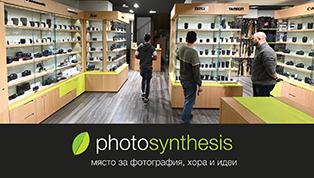
Brand extension is a marketing strategy where a company uses an established brand name to launch new products in a different category. This approach allows businesses to leverage their brand's existing equity to introduce new offerings, reaching new audiences or expanding within their existing markets. In this article, we’ll dive deep into what brand extension is, its benefits, risks, and successful examples.
Brand extension is a method used by companies to broaden their product lines by introducing new items under an existing brand name.
- The definition and core concept: Simply put, it’s when a brand stretches its identity to new products, often unrelated to its original offerings.
- Horizontal vs. vertical extensions: Horizontal extensions involve launching products in a different category, while vertical extensions occur when a brand expands into premium or budget markets with the same product type.
- Why brands choose this strategy: The goal is to capitalize on a trusted name, reduce marketing costs, and speed up the acceptance of new products.
This strategy is often seen as a quick way to expand a company’s product portfolio while utilizing existing customer loyalty.
The Benefits of Brand Extension
Brand extension offers several advantages for both the company and the consumer, making it an appealing option for growth.
- Cost efficiency: Launching a new product under an existing brand reduces marketing and advertising expenses because the brand is already recognized.
- Increased customer trust: Consumers are more likely to try a new product if it’s from a brand they already trust, increasing the likelihood of success.
- Broader market reach: Brand extensions allow companies to enter new markets or reach different customer demographics without needing to build a new identity from scratch.
- Stronger brand equity: If done correctly, a successful brand extension can enhance the parent brand’s reputation, showing it as versatile and innovative.
These benefits show why so many companies choose to extend their brands rather than create entirely new ones.
Risks and Challenges of Brand Extension
While brand extension offers multiple benefits, it also comes with its risks. Poorly executed extensions can damage a brand’s image and alienate its customer base.
- Brand dilution: Expanding too far outside a brand’s core identity can confuse consumers and dilute the brand’s value. For example, if a luxury brand releases a budget product, it could harm its premium image.
- Market rejection: Even with a well-known brand name, consumers may reject the new product if it doesn't align with the quality or expectations they associate with the brand.
- Cannibalization: When a brand extension competes with the original product line, it can result in cannibalization, where sales of the new product eat into the profits of the existing range.
- Mismatch with brand identity: If the new product doesn’t resonate with the brand’s values or doesn’t make sense to the target audience, it could create confusion or even backlash.
Recognizing these challenges is critical for companies to avoid the pitfalls of overextending their brand.
Successful Examples of Brand Extension
Numerous well-known brands have successfully implemented brand extensions, solidifying their market presence and expanding their reach.
- Apple: Initially known for computers, Apple successfully expanded its brand to include smartphones, tablets, and even wearables, all under the same identity of sleek design and cutting-edge technology.
- Dove: Dove began as a soap brand and has successfully extended into body lotions, hair care, and other personal care products while maintaining its focus on “real beauty.”
- Nike: Originally a footwear company, Nike’s brand extension into apparel and sports equipment has allowed it to dominate the athletic market as a lifestyle brand.
These examples highlight how brand extension can enhance a company’s portfolio when executed strategically, aligning the new products with the core brand message.
Conclusion
Brand extension is a powerful tool in a company’s marketing arsenal, offering opportunities for growth, cost savings, and increased customer trust. However, success depends on careful planning, ensuring the new product aligns with the brand’s core values and resonates with the target audience. Whether you're a small business looking to expand or a large corporation exploring new markets, understanding the nuances of brand extension can help you make informed decisions and avoid potential pitfalls.

Какво мислите?
Регистирайте се, за да добавите коментар.
Ако вече имате регистрация, влезте с потребителското си име и парола.